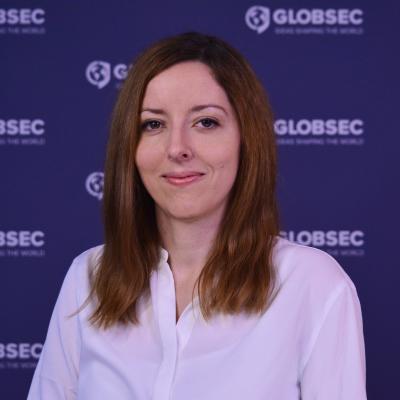Information war monitor for Central Europe: June 2017 Part 1

Photo: Jason De Villa | Flickr, licensed by CC BY-NC 2.0
Disinformation outlets in Central Europe have been outraged by the decision of the European Union and the United States to prolong the sanctions imposed against Russia over the unlawful annexation of Crimea. Narratives of aggressive NATO under the thumb of United States oppressing Russia have been supported by the documentary series of Olive Stone, “The Putin’s Interviews”, which were broadcasted by various outlets in Central Europe. Once again it was possible to observe that disinformation outlets were spreading supposed quotes of politicians that were either taken completely out of context or where never proclaimed.
The United States depicted as the grand puppeteer of NATO
One Hungarian disinformation outlet, which was in the meantime reported to Facebook for spreading disinformation and due to it taken down, even quoted Oliver Stone’s interview with Vladimir Putin, where President Putin said that NATO members are puppets of the United States because it was very hard for a member to resist the will of a large state like the US. However, the Russian President failed to mention that all NATO decisions are based on a consensus, meaning that all its 29 members must agree on a decision. Therefore, one can hardly say, that the United States controls the decision- making processes in 29 democratic states and its allies.
In connection to the membership in NATO, disinformation outlets were quite raging that the North Atlantic Alliance welcomed its new member, Montenegro. According to Hungarian Magyar Közösségportal, the Alliance devoured the Adriatic Sea with this enlargement. The disinformation outlet wrote about some unnamed “analysts”, allegedly declaring that Montenegro joining NATO was a clear message to Russia and the article stipulated that “soon” Ukraine and Georgia – two immediate neighbours of Russia – are going to join NATO as well. Slovak disinformation outlets were spinning stories with headlines “Montenegro to become a member of NATO, whereby it "betrays" Russia”. According to disinformation website quoting Russian banker, the Russian Federation has supported Montenegro’s independence, invested a lot of money in the country, and by joining the Alliance it is risking paying a “huge price for turning away from Russia”.
Since disinformation outlets have been spreading false information about NATO, its actions and its relation with the Russian Federation, NATO setting things straight. Here are reliable facts on what NATO did or did not do and arguments debunking the myths about NATO spread by pro-Kremlin websites in Central Europe.
Everybody is against sanctions imposed against Russia, at least according to the Kremlin
Pro-Kremlin disinformation outlets in Central Europe repeat the well-known narratives of the Kremlin’s representatives - Crimea has always belonged to the Russian Federation. Systematic campaign creating a serene image of life in Crimea has been depicted by disinformation outlets – Putin visiting children’s camp Artek in Crimea and personally overlooking the reconstruction of infrastructure or how Crimea is going to receive the latest models of Russian buses and trolley-cars.
Therefore, the sanctions imposed on Russia by the European Union and the United States are according to websites promoting Russian narratives completely unjustified and unlawful. The complete lack of respect for international treaties or the breach of the sovereignty of Ukraine as an independent state is not even acknowledged by them. Thus, with the prolongation of the sanctions, disinformation websites produced a wave of reports and statements of various politicians and state representatives allegedly opposing the sanctions or calling for their complete lifting. One Czech website, První zprávy, published an exaggerated report on how discontent are Germany and Austria because the amendment passed by the US Senate on sanctions supposedly hurts some European companies. The article stated “Germany and Austria went berserk” and the enhancement of the US sanctions against the Russian Federation allegedly caused “the biggest and unprecedented explosion of disagreements between the US and Western Europe.”
Sputnik Czech Republic went even further by supposedly quoting the statement of Italian Prime Minister Paolo Gentiloni that “sanctions cannot last forever” when he commented on the fact that even though the EU decided on prolonging the sanctions unanimously, it does not mean they will never be lifted. Other Czech outlet took over information from Sputnik International quoting Bulgarian President Rumen Georgiev Radev, who said that he was ready to support the lifting of the sanctions against Russia, but unfortunately did not have the power to do so by himself. Unsurprisingly, on any of these websites we could not find any articles mentioning supportive statements on the sanctions.
One Slovak disinformation outlet even quoted the Chairman of the Russian State Duma, Vyacheslav Volodin, stating that “the West genetically despises Russia and basically all Slavic nations.” According to Volodin, the sanctions are a “systematic measure of the West imposed against the Slavs”. However, Mr Volodin seems to neglect the fact that many Slavic countries are themselves active members of NATO.
In addition, the new, tougher US sanctions against Russia were depicted as part of a larger conspiracy by Vilaglato.info. According to the Hungarian portal, the main goal of the new sanctions, mainly the ones connected to Russian energy projects, was to force Europeans to buy expensive US gas instead of the cheap Russian one – despite the fact that nothing bans European countries from purchasing Russian gas, and the sanctions against European companies partaking in Russian energy projects are only potential and not actually implemented at this time. Disinformation outlets also reported on the Russian response to the new sanctions, where Dmitrij Peskov once again emphasised that there are absolutely no Russian forces in the Donbass.
Continuous campaign against Ukraine
At last in June it was possible to observe continuation of information confrontation and discrediting campaign of pro-Kremlin websites against Ukraine. One outlet claimed that the Ukrainian Parliament voted for the country’s accession to NATO, although the article itself later explained that the approved law (no. 6470) only seeks to deepen Ukraine-NATO mutual cooperation. The article omitted the information that Ukraine’s accession to NATO is quite a long-term process. Furthermore, disinformation outlets in general tend to omit the fact that a NATO candidate country must fulfil particular criteriabefore it can join the Alliance. However, joining NATO is the sovereign decision of any nation, therefore, Russia does not have a say in who gets to accede to particular international organisations.
Disinformation outlets also depict Ukraine as an aggressive power. One Hungarian outlet claimed that Oleksandr Turchynov, the secretary for the National Security and Defence Council of Ukraine responded to a question on when the war would end that “only once we take Moscow”. The quote appeared to have been invented by Russian propaganda, there is no further proof that Turchynov ever said this.
Ukraine is also continuously depicted as a chaotic place. A Ukrainian participant of the Hungarian X-factor allegedly took his family with him to Hungary because he considered Ukraine “to be too dangerous” not only because of the war, but also because of school fights and gangs. Other disinformation outlets were claiming that Ukrainian President Poroshenko needs war so that he can use Russia as the external threat in order to overshadow the growing domestic economic problems. Disinformation outlets also reported that the latest attempt of Ukraine to capture the area of the “neutral zone” in the so-called Luhansk People’s Republic have failed and the combat activities were just a “weak attempt from Ukraine to create ‘information field’ to show its Western advisors and sponsors that the Ukrainian army is fit for action and will soon defeat its enemy”.
Edited by Katarína Klingová, GLOBSEC Policy Institute; Veronika Víchová, analyst of Kremlin Watch Program, European Values Think-Tank; Patrik Szicherle, Political Capital Institute. This document was published in the framework of projects run by the GLOBSEC Policy Institute and supported by the National Endowment for Democracy. IICT tool >versus<, developed by the Beacon Project of the International Republican Institute, was used by the researchers for data collection.
© GLOBSEC Policy Institute
The opinions stated in this report do not necessarily represent the position or views of the GLOBSEC Policy Institute or the National Endowment for Democracy. Responsibility for the information and views expressed therein lies entirely with the authors.


